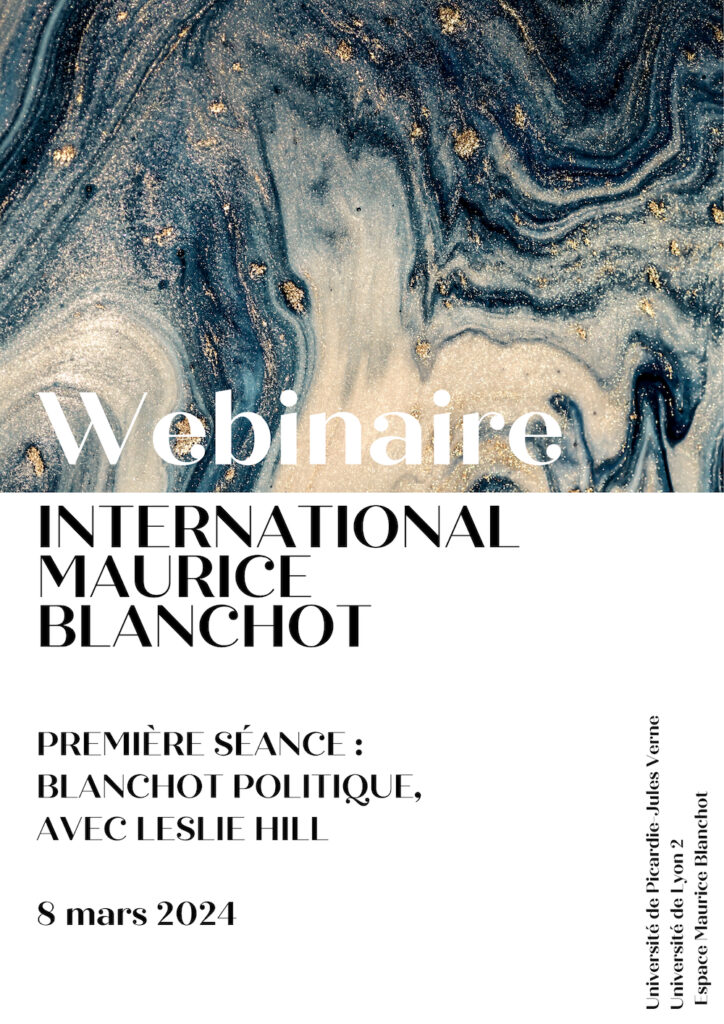
Le principal objectif de ce webinaire est de rassembler et faire dialoguer les chercheurs qui, dans le monde entier, travaillent sur, avec ou à partir de l’œuvre de Blanchot. En particulier, le séminaire peut ouvrir des perspectives à des étudiants en master ou en doctorat. ll reprend en ce sens le travail qui avait été mené à l’Université Paris 7 – Denis Diderot par Christophe Bident, Jonathan Degenève et Jérémie Majorel, avec l’organisation annuelle d’une journée d’études qui, entre 2002 et 2012, avait donné lieu à 68 communications. Sa durée est de 2 heures et il aura lieu quatre fois par an.
Il est organisé par Christophe Bident, professeur des universités, membre du Centre de Recherches en Arts et Esthétique (CRAE) de l’Université de Picardie-Jules Verne, et par Jérémie Majorel, maître de conférences, habilité à diriger des recherches, membre du laboratoire Passages XX-XXI de l’Université de Lyon 2.
PREMIÈRE SÉANCE : BLANCHOT POLITIQUE, AVEC LESLIE HILL
8 mars 2024
à 7h heure de Montréal et New York, 12h heure de Londres, 13h heure de Paris, 21h heure de Tokyo…
Lien de connexion :
https://u-picardie-fr.zoom.us/j/8697149030?pwd=SE12dUtFUnJqWDZKbVZhdzd2WGM2dz09
Read More …